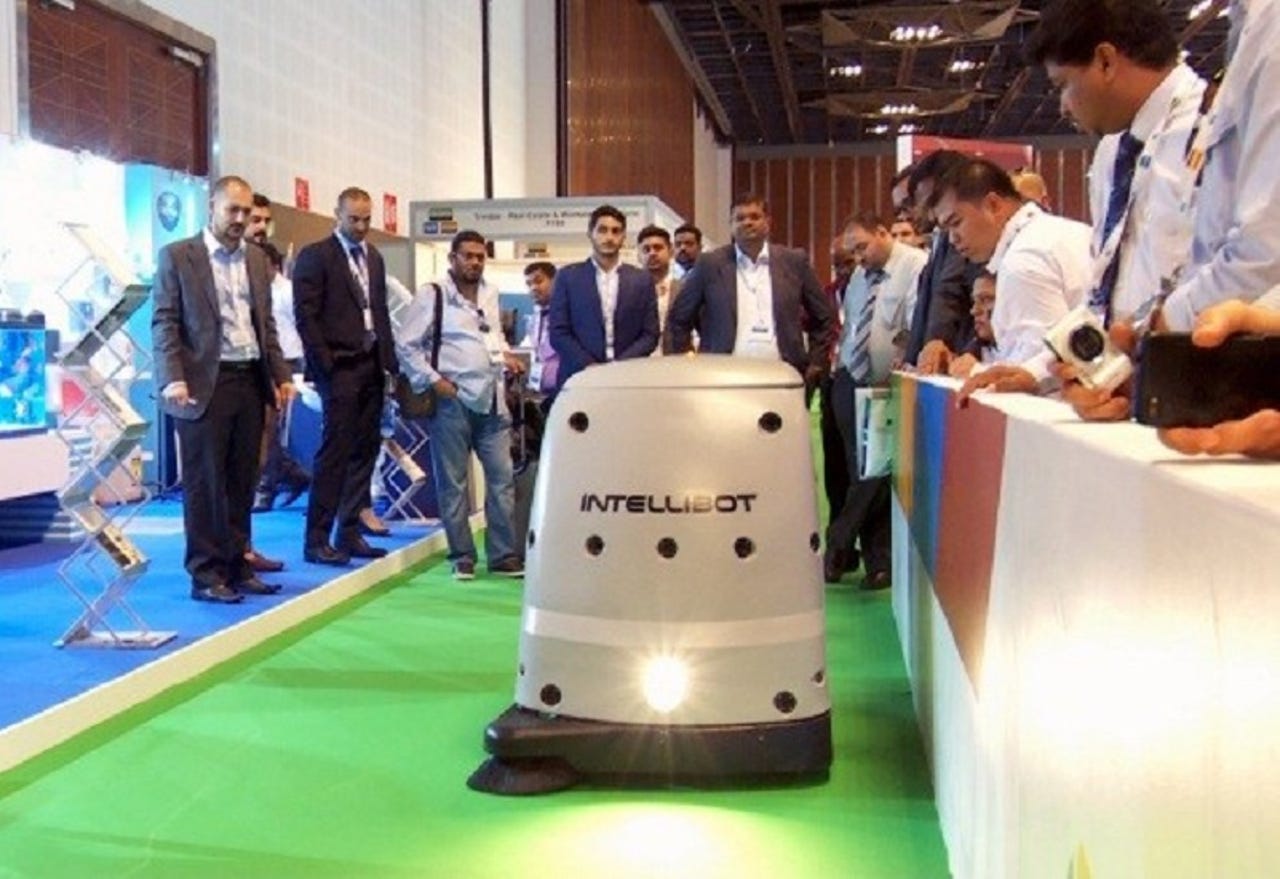The Internet of Clean: Diversey's plan to change commercial cleaning with connected technology

In April, Diversey Care, a division of bubble wrap maker Sealed Air, acquired Intellibot Robotics, a maker of autonomous cleaning solutions. Since then, Diversey has rolled out a holistic strategy that it believes will revamp the commercial cleaning and hygiene industries. The strategy centers around robots.
Let's back up. If you own a big building--an airport, a hospital, or a hotel, say--you either hire a contractor to come in and clean it or you maintain a dedicated janitorial staff. Somewhere in the neighborhood of 80 percent of your cleaning costs will go toward labor. That means labor productivity is the most important metric governing that portion of your operation. Unfortunately, cleaners are, in general, low-paid workers, which contributes to high turnover in the industry, adding tremendous cost in terms of training and lost productivity. You could pay your workers more, but you're not going to--you didn't come to own an airport by handing out cash. High labor costs are the price of doing business.
Diversey has long provided equipment and supplies cleaners need to do their jobs. We're talking squeegees, spray bottles, disinfectants, cleaning machines, wall pumps for soap, and other miscellany used in an array of industries with high-traffic or customer-facing facilities or strict hygiene guidelines governing manufacturing or packaging. Like its competitors in the field, it has never done the actual cleaning.
In 2013, Dr. Ilham Kadri, previously of DOW Chemical, took over as president of Diversey and began talking about the contract cleaning industry the same way a manufacturer of innovative medical devices might talk its core values. "It's not about cleaning floors," she tells me over the phone. "Our mission and vision is to help customers prevent food poison through monitoring food safety or addressing lack of hand hygiene. The vision and mission is to bring value to a very basic need of humanity: cleaning and hygiene."
Armed with that very marketable higher purpose, Dr. Kadri began looking at Diversey's various assets. Because of its holdings, the company had a huge catalog of products separated into various verticals. One of Diversey's holdings, Taski, caught Dr. Kadri's eye. Taski manufactures cleaning machines that staff either push or ride to disinfect floors."A few years ago," says Kadri, "you had to manually monitor each machine, meaning someone in the company had to keep an eye on the fluid levels, the maintenance needs, the usage. You didn't know if the machine had left its designated area or not."
That was fine for customers that only had a couple machines, but some facilities require dozens of machines, and cleaning service contractors might need hundreds. The logistics involved in manually tracking all those assets were overwhelming, akin to a delivery service keeping track of its fleet of trucks with paper logs (there is, unsurprisingly, an enormous and growing industry built around telematics, a class of technology dedicated to optimizing fleet logistics).
Dr. Kadri understood that remote monitoring features could bolster Diversey's sales channels. Just like a printer that automatically prompts you to reorder ink from the manufacturer, remote monitoring made it easier for customers to resupply on an ongoing basis through Diversey. A new vision began to form: a cleaning and hygiene industry built around remote monitoring and machine-to-machine communication. For Diversey, it was largely a matter of connecting all of its assets.
"The Internet of Clean" -- Dr. Kadri came up with the name -- "will touch every industry in the world, exponentially," she predicts. "We believe we're leading the way to connecting all the smart devices in a facility to transform cleaning and hygiene, from hand soap dispensers and Taski's machines to a dispensing product in a restaurant's dishwasher. It's all connected in the Internet of Clean."
Dr. Kadri considers the acquisition of Intellibot earlier this year a key piece in the IoC puzzle. "Intellibot brings automation to floor cleaning. What they bring is Artificial Intelligence and remote monitoring for the cleaning industry."Dr. Kadri estimates that whenever labor costs rise above $10 an hour per person, the economics favor one of Intellibot's automated cleaning machines, which can rove the halls and disinfect floors faster and with greater accuracy than their human counterparts. Diversey will use Taski's mechanical engineering prowess and proprietary solutions -- Taski has great squeegees, apparently -- to bolster the capabilities of Intellibot's platform.
Robotics
We hear a lot about automation and machine-to-machine communication in the logistics industry, largely because of the new realities of the on-demand economy. It's novel that the same thinking is beginning to apply to commercial cleaning.
"Nobody has dreams to one day become a cleaner," says Dr. Kadri. "There's not a lot of pride in the profession, and every year the turnover is around 70 percent. With robots you don't need to train anyone. Robots do a better job, and that's why these solutions are so important across all industries where cleanliness and hygiene matter."